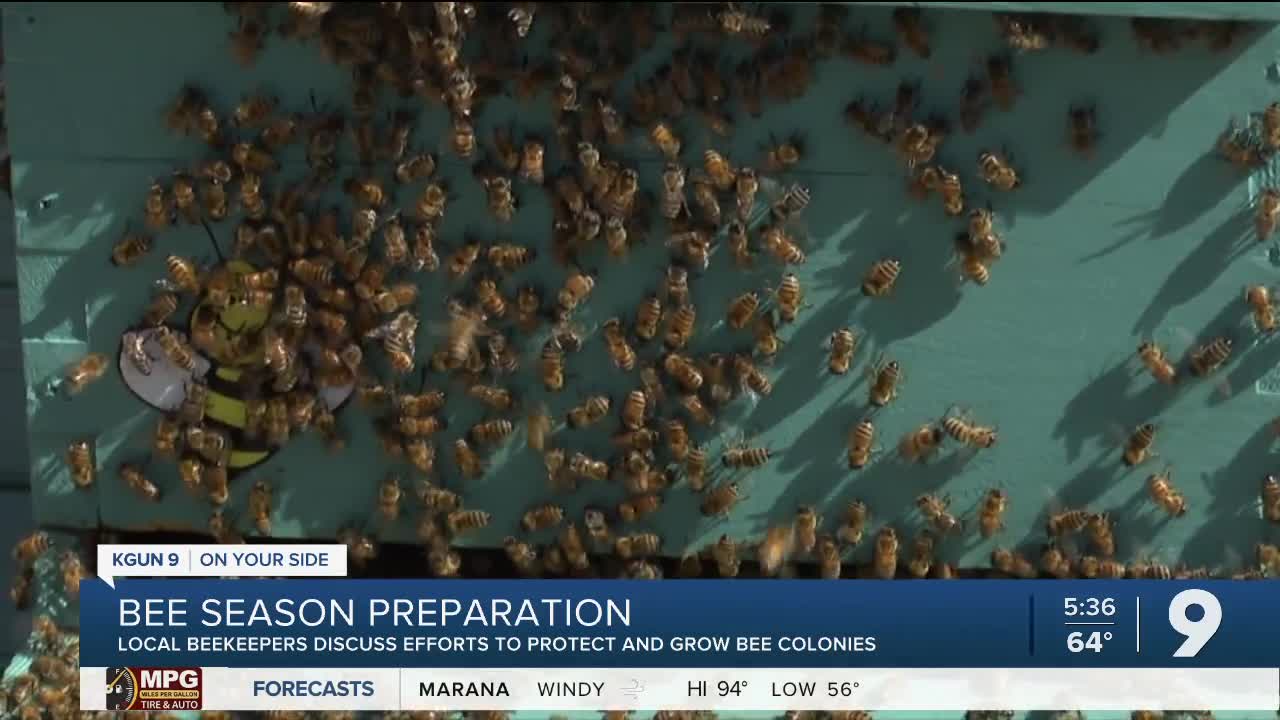TUCSON, Ariz. (KGUN) — As we head into Spring, flowers are blooming all around Southern Arizona. That means bee season is about to begin.
“You cant have enough of them either, you just always want more bees,” said Monica King.
Monica King is a third generation beekeeper. She says anyone who works with them falls in love with them. But the bees in Southern Arizona aren't as sweet as their honey.
“If they attack you, they aren’t just trying to drive you off, they’re trying to permanently stop you," Susan McClintock, beekeeper.
That’s because Tucson, like many cities along the southern border, has Africanized honey bees. A scientist named Warwick Kerr bred these bees in the 1990s to increase honey production, and they took over most of Tucson’s European colonies.
“They attacked our goats but none of them died," McClintock said. "We realized we were in trouble with the hives.”
Now local beekeepers are working to bring back European bees. They’re a lot less aggressive and more predictable.
“The European hive, if it’s startled, might send out 10-15 bees to say ‘Hey get away from us’," King said. "If you startle an Africanized hybrid, it’ll send out hundreds to thousands of bees in defense of their hive.”
When King is called to relocate an Africanized hive, she’ll replace the queen bee with a European queen. This queen already has her eggs fertilized. So when she comes in, she lays European eggs that slowly replace the African ones.
“It helps everybody," McClintock said. "It helps the bees, it helps the people, it helps the animals and it helps the environment.”
Beekeepers say if you see a bee hive in your backyard, wait two to three days. If it’s still there, then you can contact the Southern Arizona Beekeepers Association to have it relocated.
----
STAY IN TOUCH WITH US ANYTIME, ANYWHERE
- Download our free app for Roku, FireTV, AppleTV, Alexa, and mobile devices.
- Sign up for daily newsletters emailed to you
- Like us on Facebook
- Follow us on Instagram
- Follow us on Twitter




